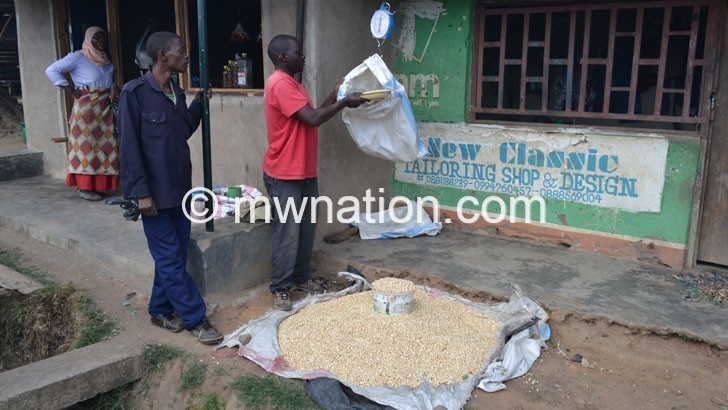Economists speak out on cost of hunger
Economic analysts have cautioned government that the hunger situation affecting over one million people would have adverse impact on the economy if not well managed.
Three Chancellor College lecturers told Business News in separate interviews hunger is likely to affect productivity and eat into some macroeconomic variables, ultimately affect the country’s growth in the short to long-term.

“Hunger has ripple effects on any economy, especially in Malawi where the figures [of those starving] are alarming. The current situation means the country will have to cough more [resources] to address the situation or use money that could have been channeled to other development projects,” said senior lecturer in the college’s economics department Exley Silumbu.
Economics professor at the college Ben Kaluwa agreed, saying the hunger shock will spill-over to other variables such as inflation.
“In an economy where hunger looms, people take advantage of the food shortage to sell commodities at a higher price since supply is low. This obviously drives up inflation. Other than that others out of desperation sell their items at a giveaway price in search for fast cash to buy food; hence, worsening the poverty levels.
“At household level hunger implies that people will have less food thus keeping away households from engaging in more productive work such as businesses rather than fetching food,” he explained.
On his part, associate economics professor Patrick Kambewa warned that recurrence of hunger is slowly eating into the economic gains, given the resources allocated to it annually.
“Hunger is becoming a recurrent issue where every year we are having people faced with hunger. This certainly is a cost to the economy,” he said.
In this financial year, government allocated K10 billion for the purchase of maize by National Food Reserve Agency (NFRA) to restock the strategic grain reserves, which is less than what is needed presently.
The K10 billion, is however an increase of about 14.7 percent when compared to the amount that was spent last financial year.
Government also spends over K40 billion annually to supply poor farmers with subsidized seed and fertiliser through the controversial Farm Input Subsidy Programme.
“What we need is to come up with long-term solution to hunger, so that our farmers can be resilient to drought and floods. Giving out food should be a short term measure,” he suggested.
He tipped government to invest in irrigation and smart farming so that farmers stop depending on rain-fed agriculture.
According to Malawi Vulnerability Assessment Committee (Mvac) Over 1 062 674 people are in need of urgent food assistance, and to bail them out, government must source K38.8 billion to source food.
Presently government has set aside 8 129 metric tonnes of maize for a once-off food distribution exercise targeting households that are facing hunger where households will receive a 50 kilogramme (kg) bag of maize a month until next harvest in March next year.
Maize, as Malawi’s staple food, traditionally impacts the country’s economy given that it constitutes 45.2 percent in the consumer price index which is an aggregate basket that determines the average movement in the cost of living.





